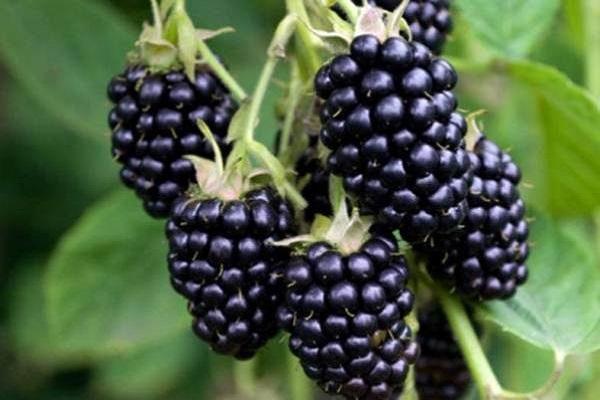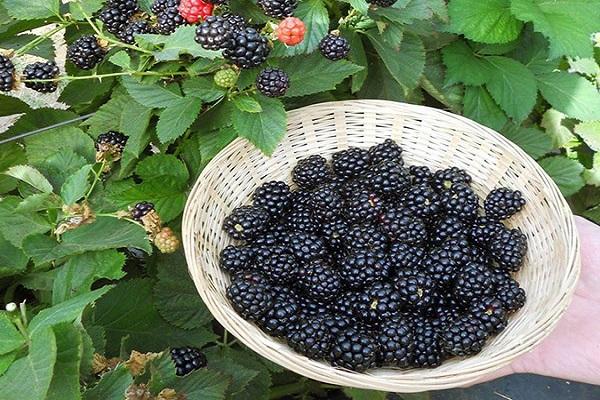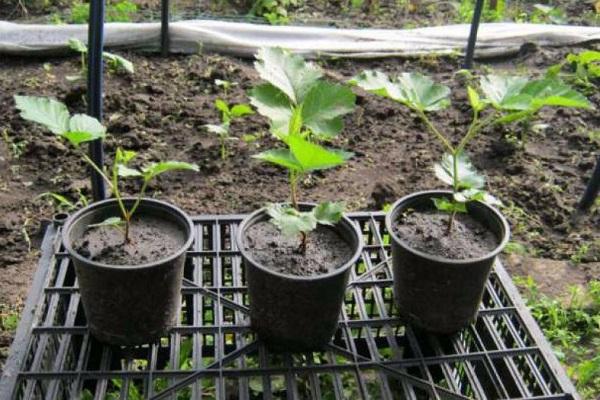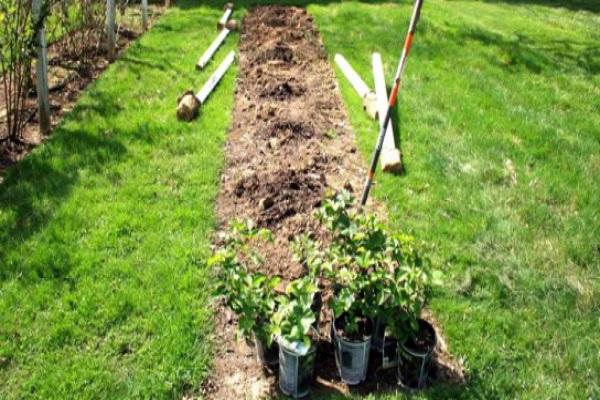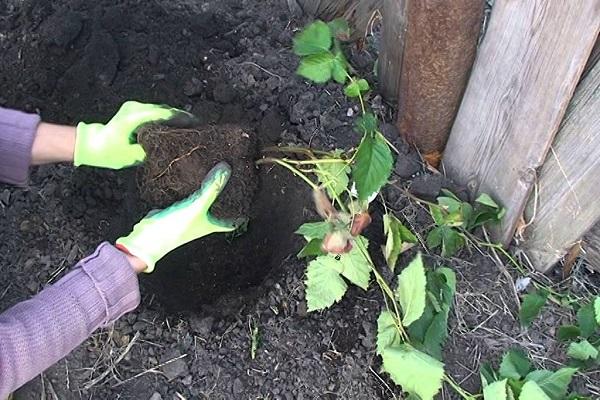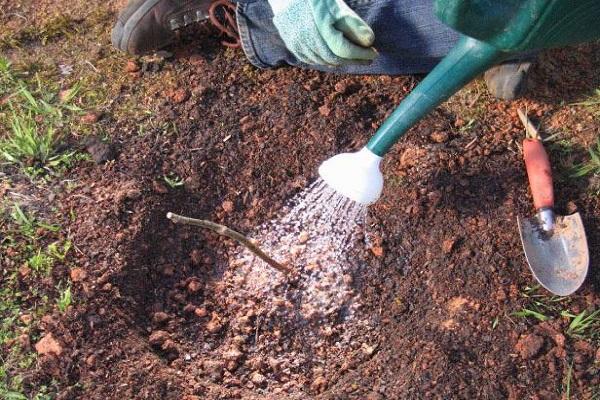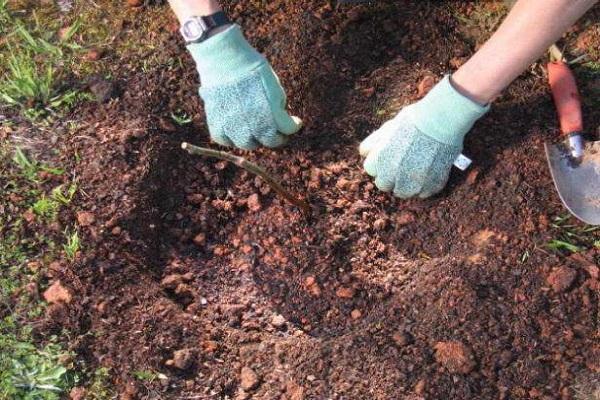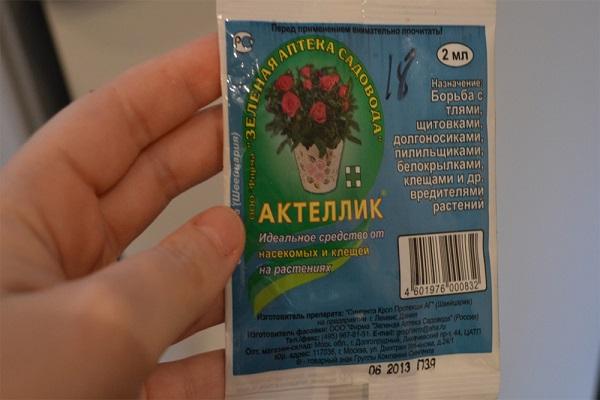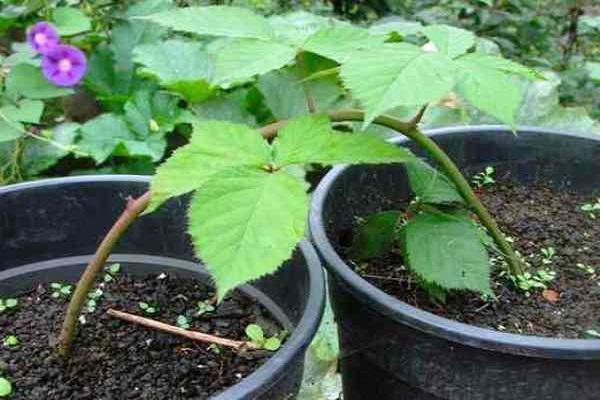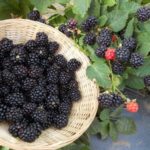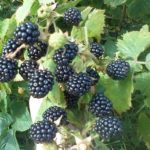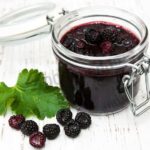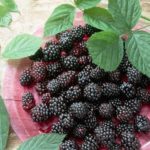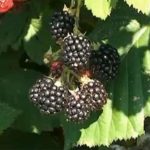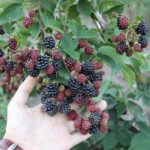Among remontant blackberry variety Ruben gained its popularity not only by its ability to bear fruit several times per season, but by its large fruit and relative unpretentiousness to the conditions of detention. Even a novice gardener can grow Ruben blackberries in his own summer cottage; the main thing is to know the basic subtleties of planting and care.
- History of selection
- Description and characteristics of blackberries
- Main advantages and disadvantages of the variety
- Features of growing blackberries Ruben
- When is the best time to plant
- How to choose and prepare a place for planting
- How to plant Ruben blackberries
- Specifics of crop care
- Watering
- Feeding
- Pruning and preparation for winter
- Diseases and pests of the bush
- Reproduction methods
- Harvest and storage
History of selection
Bushy Reuben is the result of the effective work of the famous breeder, Professor John Reuben Clark. In 2005, he conducted an experiment and crossed promising blackberry lines APF-44 and 2292T2. But this was only the first part of his work, then in 2006 he used an HPB3 seedling in an English nursery.
Ultimately, the bred Ruben blackberry successfully passed the test and appeared on the market in 2009. In Russia, a high-yielding variety was introduced in 2011-2012.
Description and characteristics of blackberries
The remontant blackberry Ruben is distinguished by its ability to form large fruits on the shoots of the current year. This plant belongs to the early ripening varieties. The height of its erect shoots is 170-200 centimeters; there is no need for support. The thorns of the Ruben blackberry are small, there are not so many of them, and they do not create any difficulties during harvesting.
The flowering phase of blackberries occurs at the end of June (in the Moscow region). The flowers reach 5 centimeters in diameter and are white in color. The collection of the first fruits begins in early August, the fruiting period lasts until the onset of cold weather. Blackberry productivity indicators are almost 6 kilograms per bush. The weight of the berries is between 10-16 grams, their size is about 4.4 centimeters.
For information! The tasting score for Ruben blackberries out of 5 points is 4.5, and transportability is 4.7 points..
The fruits are distinguished by their round shape. They are black in color and have a glossy surface. The consistency is quite dense and elastic. The fruitful plant has a high degree of frost resistance, up to -16 degrees. If Ruben blackberries are grown in the Middle Zone, then additional shelter is indispensable.
Main advantages and disadvantages of the variety
Among the positive characteristics of Ruben blackberries, experienced gardeners note:
- repairability;
- low maintenance requirements;
- there is no need to arrange supports or garter;
- large fruit;
- high taste qualities of fruits;
- extended fruiting period (from August to frost);
- highly productive bush;
- does not cause difficulties when covering for the winter.
But blackberry Ruben also has its weaknesses, including:
- low level of drought resistance;
- insufficient winter hardiness;
- cannot tolerate excessive heat.
Features of growing blackberries Ruben
To achieve the desired result, it is necessary to carry out planting work in a timely manner and not neglect the simple rules of agricultural technology.
When is the best time to plant
The optimal time for planting blackberry seedlings in the southern regions is autumn (late October). The main thing is to do it 2-3 weeks before the onset of frost. But in the Central region, the Urals and Siberia, it is recommended to plant young plants in April, before the start of the bud break phase.
For information! If Ruben blackberry seedlings have a closed root system, then planting work can be carried out at any time.
How to choose and prepare a place for planting
It is noteworthy that Ruben blackberries can effectively produce crops in one place for 10-15 years. But this is subject to the right location. Considering that the variety does not tolerate heat well, it is better to identify it in light partial shade. The site must be protected from cold winds by various outbuildings, structures, and fencing.
It is worth planting seedlings in the place where green manure, legumes, cereals and pumpkin crops previously grew. Placing blackberries after strawberries and raspberries is not rational, since these plants suffer from the same fungal infections and rot.Also, avoid choosing damp or marshy areas.
Important! For Ruben blackberries, the best option is soil with sufficient air and moisture permeability and a neutral (slightly acidic) environment.
To get large and tasty fruits from Ruben blackberries, you need to add 500 grams of lime per 1 square meter to acidic soil, and 1 bucket of sand to loamy soil. If the soil is sandy, then use 1 bucket of peat or rotted vegetation per 1 square meter.
How to plant Ruben blackberries
First of all, you need to choose the planting material wisely. A high-quality seedling has 1-2 stems with a thickness of 5 millimeters. There are no suspicious lesions, cracks, or signs of disease on the bark. The underground part should consist of 2-3 roots with a length of 10 centimeters, and many small adnexal processes. For rapid rooting, the roots should be treated with a solution of Kornevin, a heteroauxin, which is prepared according to the manufacturer’s instructions.
If you plan to plant several bushes, then you need to maintain a distance between them of 100-130 centimeters. The distance between rows should be 200 centimeters. The landing algorithm involves performing the following actions:
- Clear the planting area from weeds.
- Add useful components to the soil at the rate of 10 kilograms of compost (humus), superphosphate (100 grams), potassium sulfate (30 grams) and wood ash (100 grams) per 1 square meter.
- After 2-3 weeks, form planting pits 45 centimeters deep.
- Lay expanded clay drainage at the bottom.
- Fill the hole with fertile mixture in the form of a mound.
- Place the seedling in the center, straighten its roots, deepening the lower buds by 2-3.
- Sprinkle with soil and compact it gently.
- Water at the rate of 10 liters of water per planting.
- Fill to the top with dry soil.
At the end of planting, the bush is mulched and shortened to a height of 15-20 centimeters. Thanks to this technique, it is possible to improve not only the quality of survival, but also the growth of lateral branches.
Specifics of crop care
Since the Ruben blackberry is a remontant plant, for its normal growth and development you need to know some rules of care.
Watering
In this case, you should not overdo it with irrigation measures; there is a high probability of root rotting. But the lack of moisture also has a detrimental effect on blackberries - pollination deteriorates, the ovaries become weak and soon fall off. Irrigation should be done once every 7 days, spending 10 liters of water per planting. It is more effective to carry out the procedures in the evening, and transfer loosening to the morning.
To prevent moisture evaporation, it is necessary to mulch the soil. From the scorching sun, the bushes should be shaded with a net, which will also increase pollination rates. At temperatures above +30 degrees, pollen becomes sterile. Watering is especially important during the blooming period of flowers.
Feeding
When planting, a sufficient amount of nutrients is added to the hole, which is enough for the bush for 2 years. But on the third it is already necessary to carry out feeding procedures:
- in April use urea (3 tablespoons per 5 liters of water);
- in September-October, superphosphate (100 grams) and potassium salt (30 grams) are used.
At the flowering stage, Ruben blackberries will benefit from feeding with wood ash at the rate of 100 grams per 10 liters of water.You should not apply nitrogen-containing fertilizers in the second half of summer, otherwise, with intensive growth of green mass, the level of resistance to low temperatures will deteriorate.
For information! Boric acid, used at the flowering stage, improves the quality of fruit set.
Pruning and preparation for winter
Complete removal of all shoots is carried out in November. This makes it possible to rejuvenate the bush and increase frost resistance. Before winter, the root zone is protected with mulch. The cut branches are disposed of and burned.
Diseases and pests of the bush
One of the main advantages of Ruben blackberries is increased immunity to diseases and parasitic individuals. Gray rot affects the berries below only when there is excessive moisture. It is possible to save the harvest by spraying the plant with 1% Bordeaux mixture (at the beginning and at the end of the flowering stage).
If the summer turns out to be dry, then blackberries can be attacked by colonies of small aphids. This pest feeds on the sap of the plant and destroys it. Since the carriers of this scourge are ants, it is necessary to fight them as well. The most suitable for these purposes are Anteater and Cypermethrin. The affected shoots are pruned, and the bush is sprayed with Aktara solution (2 grams per 10 liters of water) before and after the flowering phase or Actellik (2 milliliters per 2 liters of liquid).
Reproduction methods
There are several ways to grow Ruben blackberries effectively:
- By layering. They are buried in pre-fertilized holes near the mother bush and secured with staples. After the formation of their own roots, they are separated.
- Seeds. The method works, but the fruits can only be harvested in the third year.
- Cuttings.In mid-summer, green cuttings are divided into fragments 10 centimeters long, planted in separate containers, moistened as the top layer of soil dries, and covered with a mini-greenhouse. Carry out regular ventilation and watering. Determined to a permanent place after 1 month.
Harvest and storage
Ruben blackberries are a plant with an early ripening period, so the first harvest can be harvested in late June, and the next one in September-November. The fruits should be picked together with the stalk, but it is better to cut them off so that they can be stored longer. The shelf life of Reuben blackberries at room temperature is 4 days, in the refrigerator - almost 3 weeks.
Ruben blackberries are rightfully considered to be promising varieties. It is unpretentious and produces large berries. It is enough to adhere to the correct agricultural technology to reap a rich harvest.

